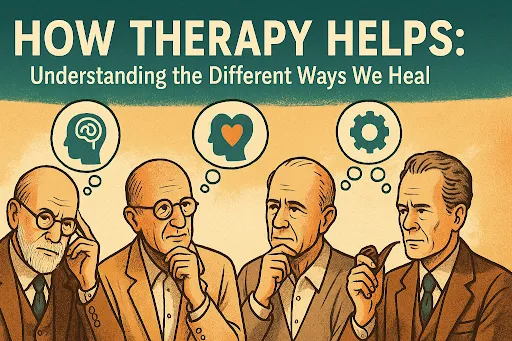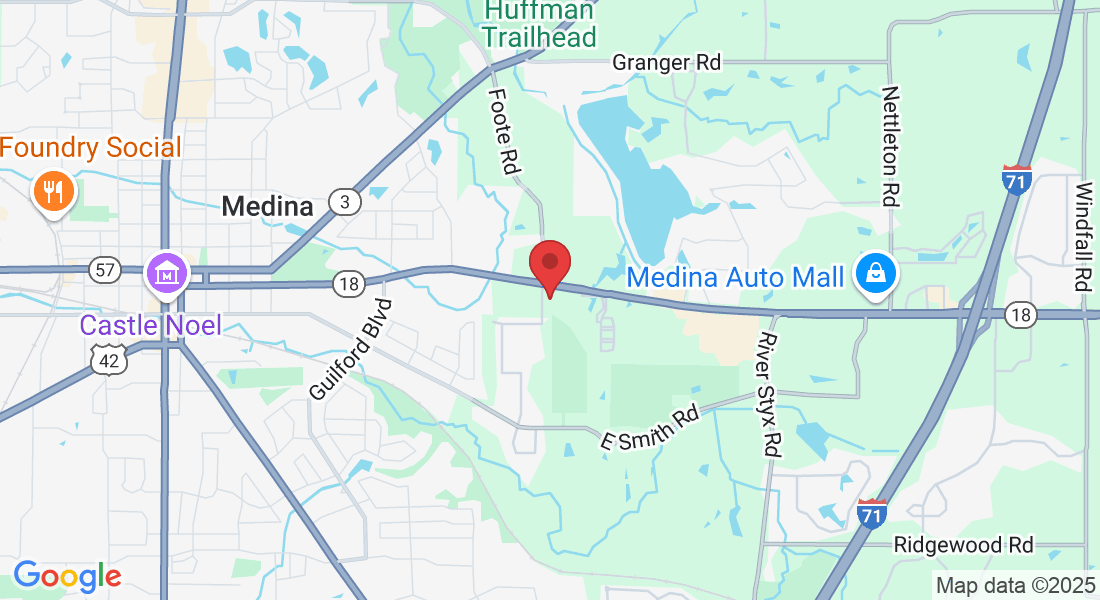How Therapy Helps: Understanding the
Different Ways We Heal
There’s no one-size-fits-all when it comes to feeling better. And that’s a good thing
What Is a “Treatment Approach” in Therapy?
When people think about therapy, they often imagine sitting in a chair and talking about their feelings. And while that’s true, it’s only part of the picture. In reality, therapists use many different approaches to help people feel better.
These are called treatment approaches. Think of them like different tools in a toolbox.
Depending on what you’re going through, your therapist will use the right tool—or even a mix of them—to help you heal, grow, and move forward. At Cornerstone Wellness Center, our therapists are trained in many of these proven approaches, and they’ll choose what’s best for you—not just follow a script.
Where It All Began: A Quick History of Therapy
A long time ago, people didn’t understand mental health the way we do now. Feelings like sadness, worry, or anger were often misunderstood—or ignored. But in the late 1800s, a doctor named Sigmund Freud started to explore how our thoughts and feelings work together.
Since then, psychology has grown a lot. Scientists, doctors, and therapists have learned that different people need different kinds of help. That’s how we ended up with many kinds of therapy: some focus on talking, others use creativity, movement, or even play.
And today? We understand that no two people are the same, so therapy shouldn’t be either.
Why There Are So Many Approaches


You might wonder, “Why not just use one way of doing therapy?”
Well, imagine going to a doctor and being told there’s only one way to treat every illness. That wouldn’t make sense, right?
Therapists use different approaches because:
People have different personalities and life stories.
Some people respond better to structure, while others need creativity.
Children may need play. Adults might need deep conversation.
Trauma, anxiety, grief, or behavior problems often need different kinds of help.
You might wonder, “Why not just use one way of doing therapy?”
Well, imagine going to a doctor and being told there’s only one way to treat every illness. That wouldn’t make sense, right?
Therapists use different approaches because:
Some therapies help you understand your past. Others focus on changing habits, managing emotions, or building relationships. And some help you reconnect with yourself through art, mindfulness, or the body.
At Cornerstone Wellness Center,
You’re Not Just a “Client”—You’re a Whole Person
Our therapists listen to your story and match the right approach to your needs. Sometimes, we use just one therapy method. Other times, we combine a few. The goal is always the same: to help you feel better and live a life that feels like yours again.Whether you’re new to therapy or returning after time away, you’ll find support, understanding, and the right path forward—together.
We will often explain the type of treatment that we want to use, understanding that you can choose to refuse a particular approach. In those instances, we will explore with you other options based on our knowledge and training so that we can help you achieve the results that you are seeking.
WE HAVE BEST COUNSELORS
Meet Our Therapists
We think it’s really important that clinicians have a mixture of clinical skill and human qualities that mean you can place your trust in them. We interview every potential partner in person before we agree to work with them, as well as carrying out rigorous background checks.
Frequently Asked Questions
How Therapy Helps: Understanding the Different Ways We Heal
Q1: What does “treatment approach” mean in therapy?
It means the specific way a therapist helps someone feel better. There are many types, and each works a little differently depending on what you need.
Q2: Do I get to choose which approach is used?
Yes and no. Your therapist will talk with you to understand what you’re going through and may suggest the best approach—or mix of approaches—for your situation.
Q3: Can therapy help with more than one problem at a time?
Absolutely. Many people come to therapy with several concerns, like anxiety, grief, or family issues. Different approaches can be combined to support all of these.
Q4: What if one type of therapy doesn’t work for me?
That’s okay. Therapy is flexible. If something isn’t helping, your therapist can adjust the approach until you find what works best.
Q5: Are treatment approaches the same for kids and adults?
Not always. Kids often need more play or creative-based therapies. Adults may do better with talking or mindfulness. But each person is unique, and we always adapt.
CONTACTS
Find Us on a Map
We think it’s really important that clinicians have a mixture of clinical skill and human qualities that mean you can place your trust in them. We interview every potential partner in person before we agree to work with them, as well as carrying out rigorous background checks.
4018 Medina Road, Suite D

Our clinic is a private mental health partnership, with a carefully selected team of Psychologists.
Compliance and Cybersecurity Provided by:
Home | About | Children | Adolescents | Individuals | Families | Business Programs
© 2026, Cornerstone Wellness Center. All rights reserved.
Made with ♥ In Las Vegas, NV by Megafluence, Inc.
Powering Thought Leaders Worldwide
https://megafluence.co
Made with ♥ In Las Vegas, NV by Megafluence, Inc.
Powering Thought Leaders Worldwide
https://megafluence.co














